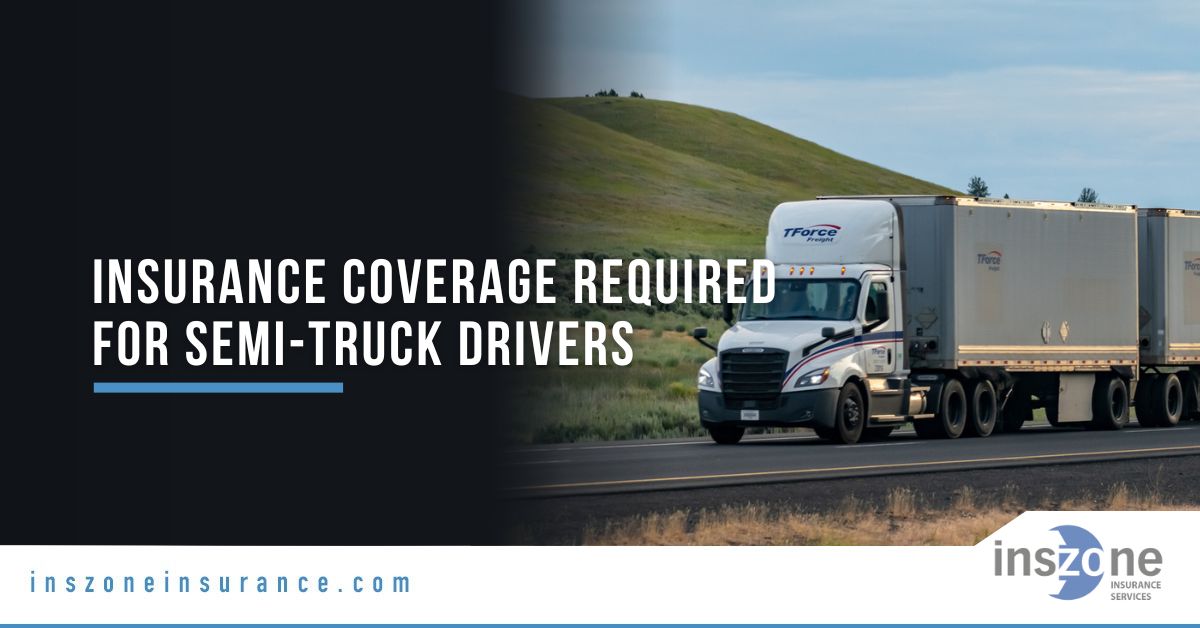Federal Requirements:
- Public Liability Insurance: The Federal Motor Carrier Safety Administration (FMCSA) mandates that commercial trucks carrying non-hazardous materials and weighing over 10,001 pounds must have a minimum of $750,000 in liability coverage. For hazardous materials, the requirement increases to $5 million. World Insurance Associates
State Requirements:
- Washington State Utilities and Transportation Commission (UTC): Commercial carriers must file Form E (Uniform Motor Carrier Bodily Injury and Property Damage Liability Certificate of Insurance) with the UTC. The minimum insurance levels vary based on the type of operation and vehicle weight. UTC Fact Sheet
Why is Adequate Insurance Crucial for Semi-Truck Drivers in Pasco?
- Industrial Expansion: Pasco’s industrial boom has led to increased trucking activities, necessitating comprehensive insurance to mitigate risks associated with higher traffic and cargo volumes. Tri-City Herald
- Regulatory Compliance: Adhering to both federal and state insurance requirements is essential to avoid legal penalties and ensure uninterrupted operations.
Who Needs to Comply with These Insurance Regulations?
- Owner-Operators: Individuals operating their own trucks must secure appropriate insurance coverage to comply with federal and state mandates. Owner-Operator Insurance Coverage
- Trucking Companies: Businesses employing semi-truck drivers are responsible for ensuring all vehicles and drivers meet the necessary insurance standards.

Where Can Semi-Truck Drivers Obtain the Required Insurance?
- Licensed Insurance Providers: Drivers and companies should consult with insurance agents authorized to issue commercial trucking policies in Washington State.
- Online Resources: The FMCSA and Washington State UTC websites provide information on insurance requirements and filing procedures. FMCSA Insurance Filing
When Should Insurance Coverage Be Reviewed or Updated?
- Annually: Regular reviews ensure coverage aligns with current operations and complies with any regulatory changes.
- After Significant Changes: Updates are necessary following the acquisition of new vehicles, changes in cargo types, or alterations in operational scope.
How Can Semi-Truck Drivers Ensure Compliance with Insurance Regulations?
- Stay Informed: Regularly consult federal and state transportation authorities for updates on insurance requirements.
- Maintain Documentation: Keep all insurance certificates and filings current and readily accessible.
- Engage Professionals: Work with experienced insurance agents familiar with commercial trucking regulations in Washington State.

Recent Developments and High-Interest Changes
- Traffic Safety Penalties: Washington State lawmakers have proposed new penalties for traffic safety violations, including increased fines for negligent driving. Staying updated on these changes is crucial for compliance. NBC Right Now
- Truck Stop Regulations: With the growing demand for truck stop services in Pasco, city officials are considering new regulations to better manage overnight parking and related services. Tri-City Herald
Key Takeaways
- Compliance is Essential: Adhering to both federal and state insurance requirements is critical for legal operation and risk management.
- Stay Updated: Regularly review and adjust insurance coverage to align with operational changes and regulatory updates.
- Leverage Resources: Utilize available resources from transportation authorities and insurance professionals to ensure comprehensive coverage.
Sources & Outbound Links
- Federal Motor Carrier Safety Administration – Insurance Filing Requirements
- Washington State Utilities and Transportation Commission – Motor Carrier Insurance Requirements
- Tri-City Herald – Pasco Industrial Boom
- NBC Right Now – New Traffic Safety Penalties in Washington State
By understanding and adhering to these guidelines, semi-truck drivers in Pasco can ensure they operate safely, legally, and efficiently within the evolving landscape of Washington’s transportation sector.





